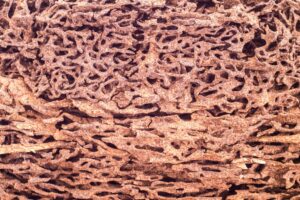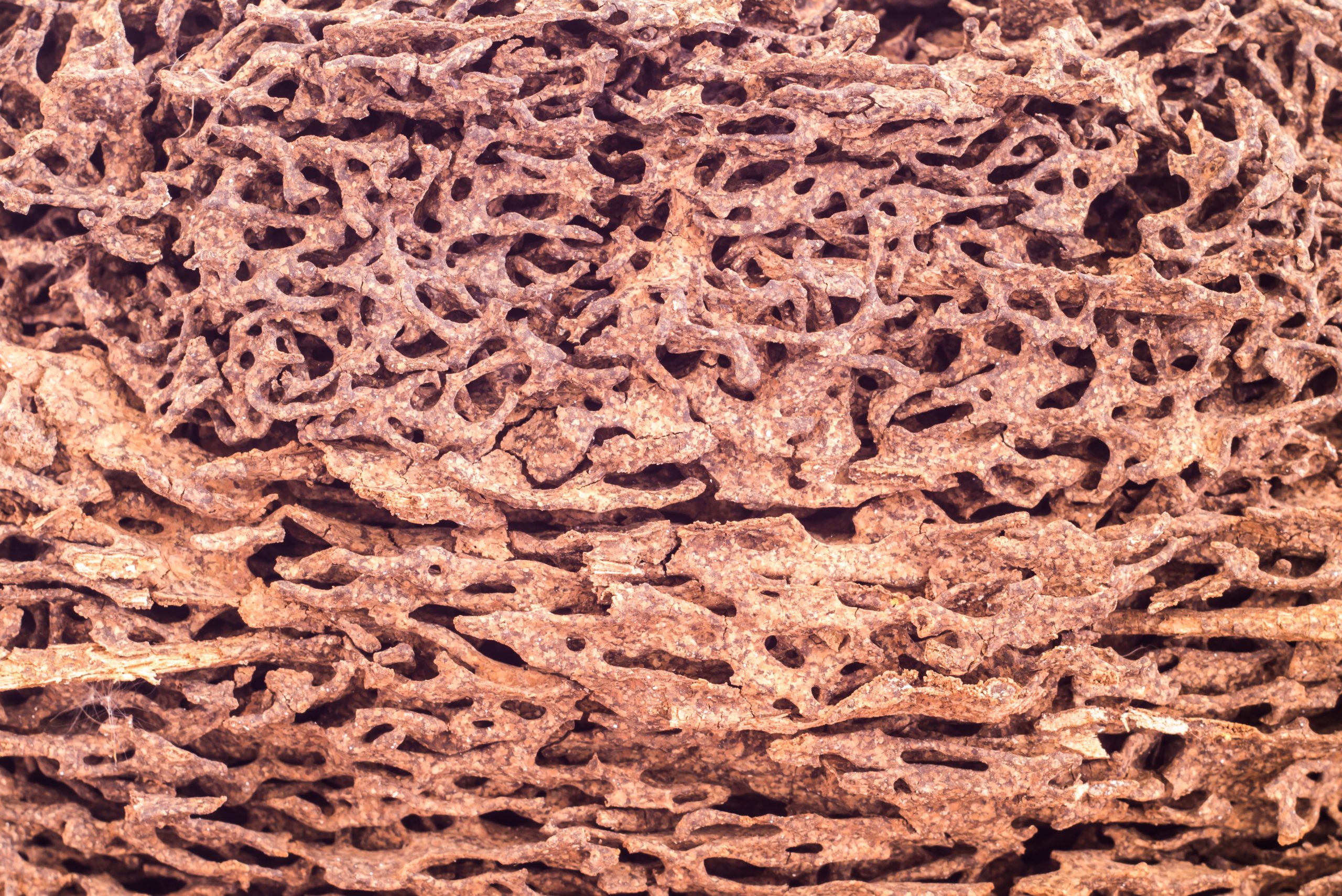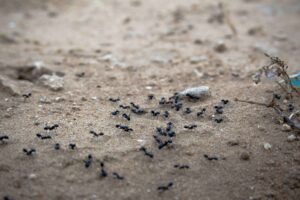 Termites will often live in your home’s interior or exterior for an extended period of time before you even notice their presence. Because of the nature of termites, whether they are drywood termites living deep within wooden structures, or subterranean termites burrowing underground, significant damage can be done before these pesky intruders are discovered. To limit damage, it is important to know and recognize early signs of termites and treat them as soon as possible.
Termites will often live in your home’s interior or exterior for an extended period of time before you even notice their presence. Because of the nature of termites, whether they are drywood termites living deep within wooden structures, or subterranean termites burrowing underground, significant damage can be done before these pesky intruders are discovered. To limit damage, it is important to know and recognize early signs of termites and treat them as soon as possible.
Signs of Termites
There are signs of termite damage that, when alerted to, can help identify the possibility of a termite infestation earlier rather than later so you can begin treatment before incurring more damage. These are some common signs of termites to be aware of: discolored drywall, pinpoints in drywall, squeaky or buckling floorboards, wood that sounds hollow, crumbling wood, peeling paint that resembles water damage, maze-like patterns in wood, mud tubes, piles of termite pellets that look like salt mounds, piles of wings from termite swarms. There are other signs as well, although these tend to be the most common to keep an eye out for.
Termite Damage
It is estimated that every year in the US, termites cause billions of dollars of damage, primarily to wood. Unfortunately, termites can cause thousands of dollars of damage to any structure if they are not caught early enough. These pesky diggers can create a destructive system of tunnels that can destroy floors, doors, drywall, furniture, and any other wood structures within a building.
Damage can be so extensive that it may even affect the structural integrity of a home. Unbeknownst to homeowners, insurance does not usually cover termite damage, leaving homeowners to cover the cost. This is why it is essential to catch termite damage and treat it quickly.
Termite Treatment
Termite inspections are critical to catching termite infestations early. An experienced pest control expert in Monroe, GA, and the surrounding areas of Loganville, Winder, and Athens can look in detail for signs of termite damage to identify colonies and recommend treatment.
When you contact Pest Force, we work to provide complete termite solutions to rid your home of termites once and for all. After a thorough inspection, if termites are found, technicians will install and monitor bait stations until all signs of termites are gone for good.
For quick inspection and treatment options or to schedule annual termite inspections, contact our experts at Pest Force. We are the company you can trust to keep your home safe and free of pesky termites once and for all.
FAQs About Termites
Why Do Termites Eat Wood?
Termites primarily have a diet of cellulose which can be found in substances such as grass and wood. This cellulose found in wood is what gives termites the nutrients they need to survive. Because wood is usually hard to digest, termites have a monopoly on wood and don’t have to compete with many other insects for their food source. Because homes are made of wood, this makes them susceptible to termite infestations and damage caused by termite feeding.
How Do Termites Eat Wood?
Wood is not a common food source for pests like insects. But termites have a special design that allows them to eat and digest wood. They first have a strong mandible jaw they use for chewing wood. They also use their jaws to burrow tunnels into the wood to create galleries for their home. The termites don’t consume all of the wood. They only take in cellulose. Bacteria and protozoans in the termites’ digestive systems break down the cellulose in a way that the termites can digest to get energy and nutrients.
When Do Termites Swarm?
Most species of termites, specifically subterranean termites, will swarm in the spring and summer months. They like warm, humid days, especially if it has recently rained. Other types of termite species, like drywood termites, swarm in the summer and fall, specifically from August through November. It likely will depend on the weather conditions, as some types of termites will prefer weather with more moisture than others.



